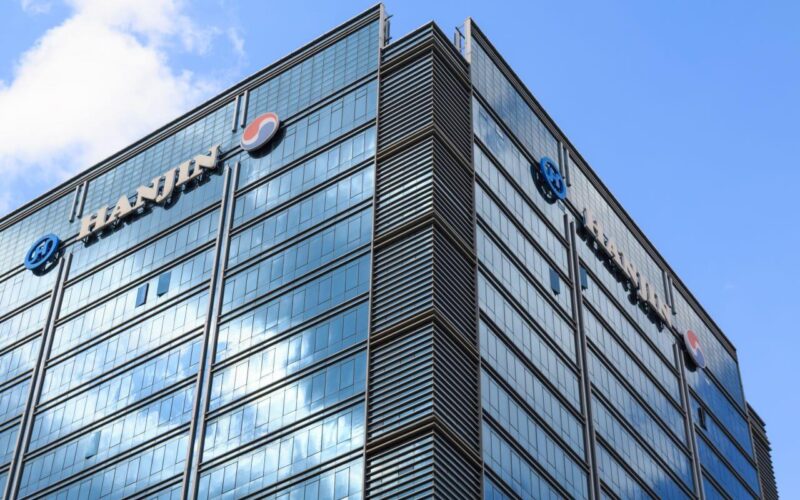South Korea’s two largest carriers with, lately, not so shiny of a reputation, may now be joining forces. Activist fund KCGI, the no. 2 shareholder in parent company of national carrier Korean Air Lines, is reportedly considering taking over rival Asiana Airlines, local media sources indicate.
KCGI (Korea Corporate Governance Improvement) CEO Kang Sung-boo has been cited by multiple sources as saying that the private equity fund “received an Information Memorandum (IM) from Asiana Airlines and is reviewing its options” for the potential acquisition of the carrier, The Korea Times reports.
Asiana Airlines is majority owned by Kumho Asiana Group, one of South Korea’s largest conglomerates, which aims to sell its controlling 31% stake in the carrier. The airline’s holding company, Kumho Industrial, announced the decision on July 25, 2019.
And it is not only Asiana Airlines that is ‘at stake’ here. Two of its budget subsidiaries – Air Seoul, which is wholly owned by the airline, and Air Busan, where Asiana has a minority stake (46%), are also included in the sale, as Korea Joongang Daily points out.
Several domestic conglomerates have expressed interest in Asiana Airlines, but none have yet confirmed their intentions. KCGI is currently holding talks with local and overseas companies in order to form a consortium and join the bidding for Asiana Airlines, Reuters writes.
Asiana expects to receive initial bids from prospective buyers in September 2019 with the main bidding to proceed in October 2019.
Battle for control
KCGI is the second-largest shareholder of parent of Korean Air, Hanjin Group. Through its subsidiary Grace Holdings, the hedge fund owns a 15.98% stake in the Group’s holding company, Hanjin KAL. Why meddle with Asiana Airlines?
First is the finances: aside of the debt-ridden Asiana, national carrier Korean Air also posted an operating loss for the second quarter of 2019 (April-June), compared to a year earlier. Korean Air reported an operating loss of $81.6 million in Q2, from an operating profit of $55.2 million from the previous year. The company recorded a net loss of $315.3 million in the second quarter 2019, The Korea Herald informs.
As for Asiana Airlines, earlier in March 2019, the carrier failed to obtain auditors’ signature on their annual financial report. Consequently, the trading of the airline’s stocks were suspended from March 22 to 26, 2019. Two South Korean credit rating agencies threatened to downgrade its credit ratings.
Later the company revised its financial report, disclosing $24.92 million operating profit (down from previously disclosed $78.10 million) versus $172.57 million net loss (up from previously disclosed $92.45 million), according to Reuters.
Then there is the rising competition from low-cost carriers (LCCs) within the region. The Seoul market itself is already saturated: for instance, both Korean Air and Asiana are based in Seoul Incheon International Airport (ICN), and so are their wholly-owned budget subsidiaries, Jin Air and Air Seoul, respectively. Incheon is also served by the South Korean budget airline Jeju Air.
According to Kang Sung-boo, the country’s airline industry, particularly its full-service carriers, need to restructure and consolidate in order to reduce competition. “The nation’s airline industry is on the chopping block. We need to stick together to overcome the crisis,” the KCGI chief said.
“I believe the KCGI could contribute to the industry by strengthening ties between the nation’s two largest airliners to overcome it,” he was quoted by The Korea Times, citing a local media outlet.
And if the word “activist” in the description of the investment fund does not ring a bell, then there is this: a spate of scandals involving members of Hanjin Group’s founding family in 2018 have fueled pressure from its shareholder KCGI, which had called on the conglomerate to cut unprofitable businesses and introduce management reforms, Nikkei Asian Review explains.
Hanjin Group Chairman and CEO of Korean Air Cho Yang-ho was indicted in October 2018 on multiple charges, including embezzlement and breach of trust. Throughout the same year, the Cho family, including his daughters Cho Hyun-ah and Cho-Hyun-min, made headlines with their own scandals.
The Group’s Chairman was ousted by shareholders from Korean Air’s board, just weeks before his death in April 2019. Although his son Cho Yanh-ho took over as new chairman, it put Hanjin Group’s future into more uncertainty.
However, KCGI’s pressure over Hanjin KAL’s management may find opposition from Korean Air’s new backer – Delta Air Lines. The U.S. carrier, which already runs a trans-Pacific joint venture with Korea Air lines, has indirectly invested in the national airline. On June 20, 2019, Delta announced it bought a 4.3% stake in Hanjin KAL and intends to increase it to 10%, subject to regulatory approval.

